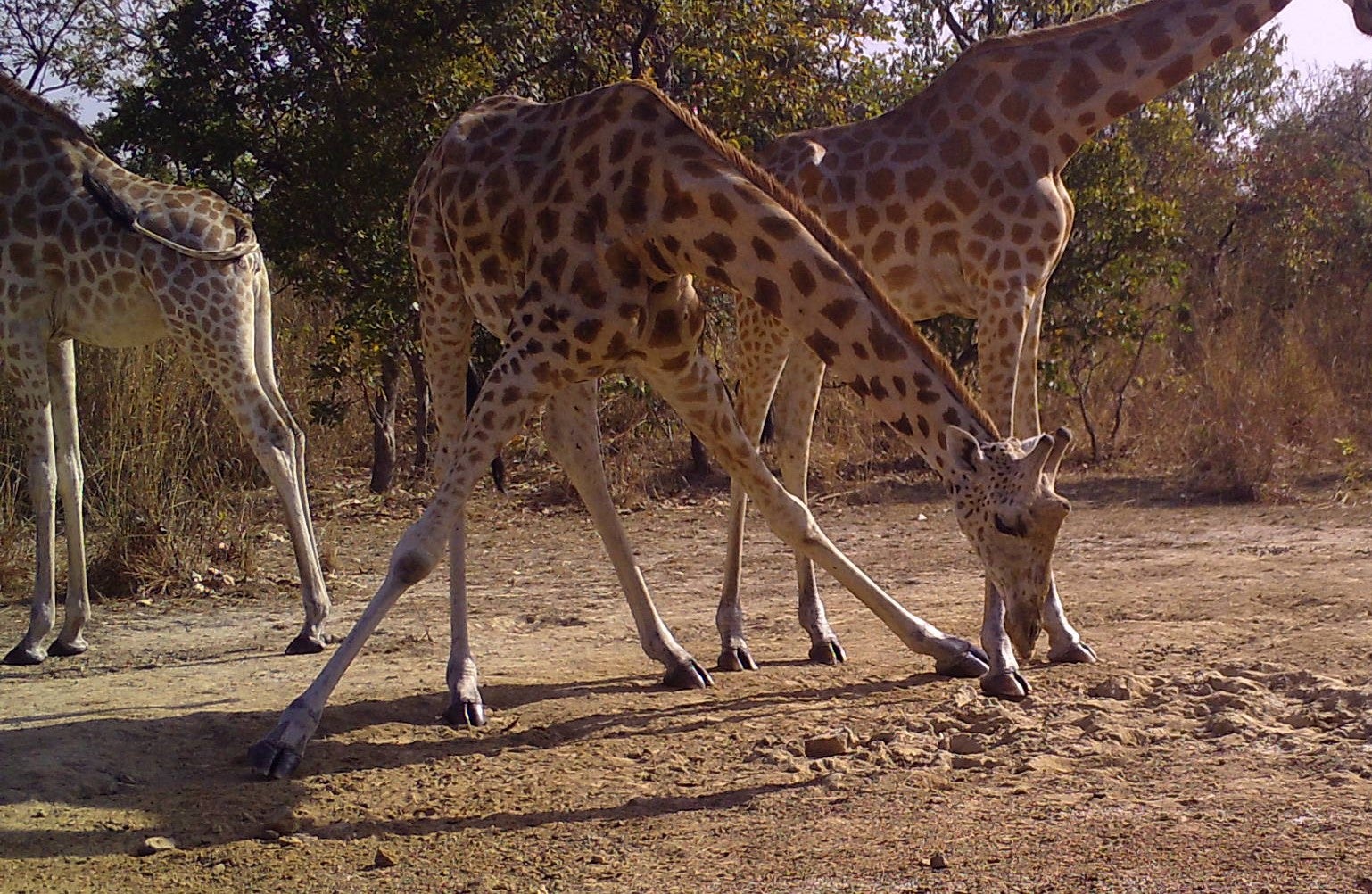Giraffe conservationists take their work online after Omicron halts field trip
Scientists from the Bristol Zoological Society are training rangers in Cameroon’s Benoue National Park remotely this winter.

Your support helps us to tell the story
From reproductive rights to climate change to Big Tech, The Independent is on the ground when the story is developing. Whether it's investigating the financials of Elon Musk's pro-Trump PAC or producing our latest documentary, 'The A Word', which shines a light on the American women fighting for reproductive rights, we know how important it is to parse out the facts from the messaging.
At such a critical moment in US history, we need reporters on the ground. Your donation allows us to keep sending journalists to speak to both sides of the story.
The Independent is trusted by Americans across the entire political spectrum. And unlike many other quality news outlets, we choose not to lock Americans out of our reporting and analysis with paywalls. We believe quality journalism should be available to everyone, paid for by those who can afford it.
Your support makes all the difference.Scientists are taking their vital giraffe conservation work online after the rise of the Omicron variant scuppered a planned trip to Cameroon at the last moment.
Dr Caspian Johnson and Dr Sam Penny, from the Bristol Zoological Society, unexpectedly found themselves working from home this Christmas instead of in the Benoue National Park.
They had been due to give training to eco-guards in new smartphone software that builds up a map of the threats facing endangered Kordofan giraffes.
Their trip was cancelled just 24 hours before they were due to fly.
Instead of delaying the programme until the trip can be rescheduled, they will now be conducting workshops online for the park’s 30-strong team.
Dr Johnson told the PA news agency: “In northern Cameroon and in this particular national park, the population is declining and we are not really 100% sure why this is.”
He continued: “One of the dominant challenges they face is that you have about 30 eco-guards or rangers patrolling an area the size of greater London so, as you can imagine, the odds are stacked against them.”
The guards are now being equipped with software to input geo-referenced wildlife and threat data on their phones.
“Over time you get a hotspot image of where threats are and where they are most likely to occur,” Dr Johnson said.
“What this allows conservation decision-makers to do is target limited resources and patrol efforts towards those areas most likely to have those threats.”
While poaching is a serious issue facing sub-Saharan Africa’s giraffe population, it is not thought to be the main risk to those in the Benoue National Park.
Dr Johnson said: “We had our first report a week ago of a giraffe actually being poached in the area, but before then we hadn’t really received any reports of that.
“More likely, we think, is that the declines were associated with increased human pressure from things like mining and cattle herding.”
As well as the smartphone mapping tool, technology such as camera traps and drones has revolutionised conservation in the park in recent years.
“We start to be able to build a very nice, clear causation – a link between the problems or threats and the abundance of giraffes,” Dr Johnson said.
“Once you know what those links are, that’s when you can target our conservation efforts.”
He added: “To put it shortly, technology is just doing wonders for the conservationist’s tool kit at the moment.”
In total, the number of giraffes in the wild has fallen from 140,000 to less than 80,000 in just 15 years and there are now fewer giraffes left in the wild than African elephants.
Despite the growing awareness of the twin threats of climate change and biodiversity loss, conservationists warn funding to help species facing extinction falls far short of what is needed.
Dr Johnson said: “At the end of the day it really does all come back to money – we are so limited in what we can do by the amount of money that we have – we need money to provide rangers with tools, with equipment, with training.”
Asked how he feels about attempts to quantify the value of the services provided to humans by the natural world, Dr Johnson said: “It seems a bit of a pity that we have to resort to monetising these kinds of things to make it relevant to us but every rational debate so far has fallen a little bit short.”
Dr Johnson described it as a “last resort” to get people to wake up to the reality of what a warmer, nature-depleted world will mean for everyone.
“If we do lose this we are going to have to pay a huge, huge sum of money in the not-so-distant future to rehouse people whose homes are now under rising seas, or to provide alternative means to pollinate crops or provide clean water to communities that no longer have it,” he said.
“All these things that we are starting to see now in wealthy countries as well as less wealthy ones, so I think it is a very important part of the conversation.”
The planned trip to Cameroon, which is supported with funding from the National Geographic Society, is due to be rescheduled in the new year once travel restrictions have been relaxed.